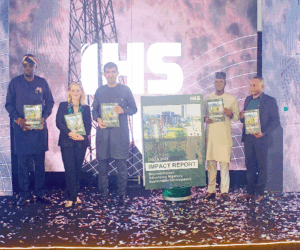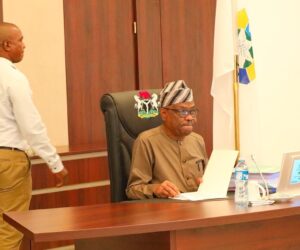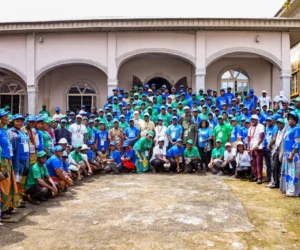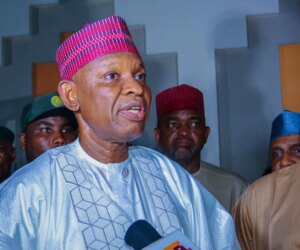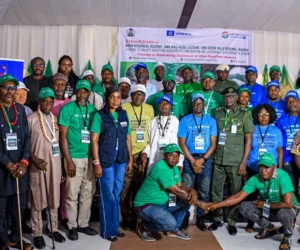Sun King, the world’s largest off-grid solar energy company, has disclosed a landmark commitment on stage at Global Citizen NOW: Johannesburg 2025.
The company will deploy over 50 million new solar kits across Africa between 2026 and 2030, amounting to over $5.6 billion of solar equipment, expanding clean energy access to 200 million people and adding 3.8 GW (3,800 MW) of new solar capacity.
These expansion plans will accelerate Africa’s clean-energy transition and Mission 300, the World Bank and African Development Bank effort to bring electricity to 300 million people by 2030.
To put Sun King’s commitment in context, the 200 million people that Sun King will serve is equivalent to two-thirds of the Mission 300 target and one-third of the SDG7 goal.
The announcement comes as global leaders gather in Johannesburg for the first G20 summit to take place on African soil, where South Africa’s G20 presidency will prioritise efforts to help developing countries finance their shift to a low-carbon economy and fund clean energy initiatives.
“Off-grid solar is already scaling at unprecedented speed. Sun King grew from 10,000 kits a month in 2017 to over 330,000 kits a month today. By 2030, we expect to exceed one million kits every month, bringing clean, affordable electricity to hundreds of millions of people faster than ever before.” T. Patrick Walsh, CEO and Co-Founder, Sun King.
Sun King operates in 11 African countries, going house by house and business by business to install solar kits designed and engineered in-house.
Its products range from entry-level solar kits that provide basic lighting and phone charging to multi-kilowatt solar inverter systems capable of powering large homes, modern businesses, schools, and public health centres.
Today, Sun King already provides light and power to 50 million people worldwide. Of Sun King’s existing customers, 67% reported that they previously had no access to electricity and depended on candles, kerosene lamps, or wood fires for basic lighting.
Through Sun King’s flexible pay-as-you-go model, customers purchase their solar systems via a loan that they repay over 12 to 24 months in daily, weekly, or monthly instalments. Customers pay as little as $0.19 a day, via mobile money, for an entry- level kit.
This model lowers the financial barrier to clean energy and broadens access among underserved communities. To date, Sun King has extended $1.4 billion in solar financing to its customers across Africa.
Through this expansion, Sun King will:
- Reach 200 million people with first-time or improved access to clean, affordable
- Deploy 8 GW of new solar capacity, comparable to the output of three African coal power stations, but green, faster, and delivered directly to households and businesses.
- Power 50 million homes, schools, health centres, and small businesses, increasing Sun King’s cumulative total from 30 million to 80 million solar products
- Create more than 45,000 new long-term jobs, bringing the company’s workforce to nearly 90,000 people.
- Open 1,200 additional retail stores across Africa, expanding to a network of over 1,650 Sun King stores.
- Deliver 1 million solar kits every month by the end of 2030, up from 330,000 solar kits
“600 million Africans still live without the power they need. Off-grid solar is the fastest, most affordable solution, creating jobs and driving growth. We’ve reached 50 million people thanks to strong government and investor support, and scaling further will require even closer partnership.” Dr. Wale Aboyade, vice president Public Policy and Government Affairs, Sun King
Sun King will deliver this commitment by growing its operations across the 11 African countries where it already works and expanding into new markets with high energy- access needs.
The company will continue investing in rapid advances in solar technology to bring ever more efficient systems to households and businesses.
Sun King will also deepen its partnerships with investors and expand consumer financing so that solar remains affordable, while directing more capital toward Africa’s green transition.





